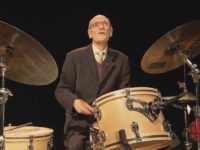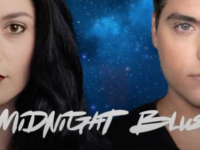For years, I thought of Vince Guaraldi’s work – particularly, on the first 16 Peanuts specials between 1965-76 – as something akin to comfort food.
I didn’t recall it as being all that challenging. His themes, in my memory, were always lushly lyrical, even impressionistic (“Love Will Come,” “Cast Your Fate to the Wind,” “Rain, Rain Go Away”). It was easy to pass him by as another in the dizzyingly long line of Bill Evans acolytes.
But in reacquainting myself later with Guaraldi, I found he had a habit of inserting these little surprises. I was particularly struck, for instance, by the way Guaraldi’s early boogie-woogie influences were flecked throughout “Little Birdie,” “It Was a Short Summer, Charlie Brown” and, of course, on the ageless “Linus and Lucy.” (Imagine my dismay, years later, to learn that as a young player around San Francisco, Guaraldi was once nicknamed “Dr. Funk.”)
Vince Guaraldi was also smitten by Latin jazz, having frequently appeared with the great Brazilian guitarist Bola Sete in the 1960s. He wasn’t afraid of phrasings more associated with rock music. There’s a complexity to the work that many missed, making tributes like pianist George Winston’s new solo set Love Will Come: The Music of Vince Guaraldi, Vol. 2 all the more difficult to tackle.
The tendency, of course, is toward that comfy familiarity. “Woodstock,” for instance, takes us back to 1974’s It’s a Mystery, Charlie Brown special. “Love Will Come/Slow Dance” were key elements from the score to You’re In Love, Charlie Brown, which originally aired in 1967. “Rain, Rain Go Away” can be heard in the final sequence of 1966’s Charlie Brown’s All-Stars. They became, for those of a certain age, part of the soundtrack of childhood.
Credit George Winston, however, for moving beyond the obvious cues. He surprises you, too, by pushing the music in new directions – mixing and matching titles from Guaraldi’s wider recording career, and stirring in a few of his own notable personal influences.
Love Will Come is goosed along by tracks like “Brasilia,” originally found on the 1964 album The Latin Side of Vince Guaraldi; “Pebble Beach/Delores Park,” elements of which were included in three Peanuts specials – most memorably in 1968’s He’s Your Dog, Charlie Brown; and “Jambo’s,” from 1963’s Vince Guaraldi/Bola Sete and Friends.
Winston allows for the expected romanticism of “Be My Valentine, Charlie Brown” – perhaps this set’s most overtly Evans-ian tune, it was originally called “Heartburn Waltz” – but also makes room for minor-key blending “Macedonia” and “Little David” from Guaraldi’s 1960 recording Little Band, Big Jazz with Conte Candoli.
More interesting, really, is Winston’s willingness to incorporate the grease-popping joys of New Orleans piano. It’s another Guaraldi-was-Dr. Funk?! moment: Winston, after all, was most associated early in his career for feather-light nature-themed concept records. Yet, on Love Will Come: The Music of Vince Guaraldi, Vol. 2 we find nods to the style of James Booker (a fun reading of “Short Summer”) and of Henry Butler, too (on “Air Music,” also known as “Surfin’ Snoopy”). “Fenwyck’s Farfel/Calling Dr. Funk,” meanwhile, has the lazy swaying rhythm of a Big Easy funeral march.
George Winston doesn’t get tangled up with nostalgia, and in so doing creates a fuller idea of just how compelling Vince Guaraldi really was.
- Nick DeRiso’s Best of 2015 (Rock + Pop): Death Cab for Cutie, Joe Jackson, Toto + Others - January 18, 2016
- Nick DeRiso’s Best of 2015 (Blues, Jazz + R&B): Boz Scaggs, Gavin Harrison, Alabama Shakes - January 10, 2016
- Nick DeRiso’s Best of 2015 (Reissues + Live): John Oates, Led Zeppelin, Yes, Faces + others - January 7, 2016





Pingback: Sounds of the Season: Dean Martin, Phil Spector, Johnny Mathis – and New Favorite Calexico